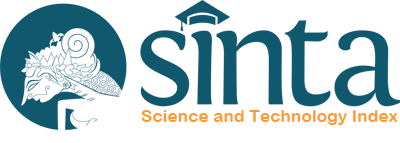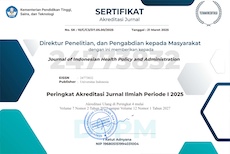Abstract
Immunization is one of the most cost-effective public health interventions, averting an estimated 2 to 3 million deaths every year. Before the coronavirus pandemic, more than nearly 14 million children didn't receive any vaccines, and 19 million children below the age did not receive the recommended vaccines in 2019. COVID 19 is leaving many of the world's most marginalized children without access to immunization services. Some are from Indonesia, India, and Pakistan, including ten countries with the highest number of unimmunized and partially immunized children. The study aims to find out the differences in the policy of routine immunization programs during the COVID-19 Pandemic in Indonesia, India, and Pakistan in terms of policy actors, policy context, policy process, and policy content. The method used is a literature review from sources such as books, journals, and relevant government regulations and policies related to routine immunization programs during the COVID-19 Pandemic. Literature study shows that the three countries have some similarities in the policy actors, policy context, and policy process. The only difference is the policy content. The policy in the form of technical guidance by the Indonesian government is more detailed, comprehensive, and structured than the other two countries.
Bahasa Abstract
Imunisasi adalah salah satu intervensi kesehatan masyarakat yang paling efektif dari segi biaya, mencegah sekitar 2 hingga 3 juta kematian setiap tahun. Sebelum pandemi coronavirus, hampir 14 juta anak tidak menerima vaksin apapun, dan 19 juta anak di bawah usia tidak menerima vaksin yang direkomendasikan pada tahun 2019. COVID-19 menyebabkan banyak anak yang paling terpinggirkan di dunia tidak mendapatkan akses ke layanan imunisasi. Beberapa di antaranya berasal dari Indonesia, India, dan Pakistan, termasuk sepuluh negara dengan jumlah anak yang tidak diimunisasi dan sebagian diimunisasi tertinggi. Penelitian ini bertujuan untuk mengetahui perbedaan kebijakan program imunisasi rutin selama Pandemi COVID-19 di Indonesia, India, dan Pakistan dalam hal aktor kebijakan, konteks kebijakan, proses kebijakan, dan isi kebijakan. Metode yang digunakan adalah tinjauan literatur dari sumber-sumber seperti buku, jurnal, dan peraturan serta kebijakan pemerintah yang relevan terkait program imunisasi rutin selama Pandemi COVID-19. Studi literatur menunjukkan bahwa ketiga negara memiliki beberapa kesamaan dalam aktor kebijakan, konteks kebijakan, dan proses kebijakan. Satu-satunya perbedaan adalah isi kebijakan. Kebijakan dalam bentuk panduan teknis oleh pemerintah Indonesia lebih rinci, komprehensif, dan terstruktur dibandingkan dengan dua negara lainnya.
Recommended Citation
Delfyan, Dian Trisna and Ilyas, Yaslis
(2021)
"Comparative Analysis of Routine Immunization Policy During COVID-19 Pandemic in Indonesia, India, and Pakistan,"
Journal of Indonesian Health Policy and Administration: Vol. 6:
No.
2, Article 3.
DOI: 10.7454/ihpa.v6i2.4847
Available at:
https://scholarhub.ui.ac.id/ihpa/vol6/iss2/3




